Foster's new winery designs
The impressive Le Dôme winery in Saint-Émilion is almost ready.“We are just coming to the end of construction – we hope to move in within August,” says Jonathan Maltus, owner of Château Teyssier.
Nestled in the rolling hills of Bordeaux, the modern building – designed by London-based Foster + Partners – echoes the gentle slopes that surround it.
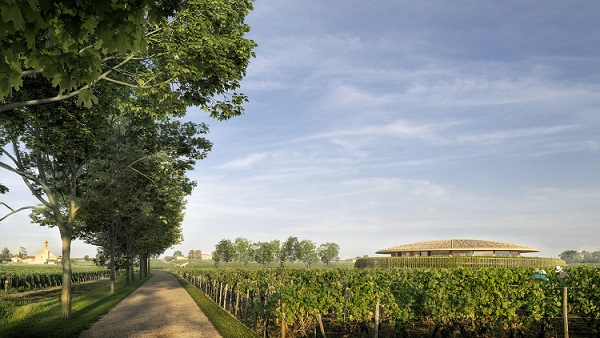
Visitors will approach the winery along a tree-lined avenue, at the end of which is the circular temple to the iconic single-vineyard wine, Le Dôme, which is currently produced at Jonathan’s Bordeaux base, Château Teyssier.
The building’s architect, Sir Norman Foster, said at the start of construction in 2019: “The views and the landscape have always been the primary protagonists of the design. The process of winemaking is taken to the heart of the building and the upper level provides a flexible area for people to gather and taste the wonderful wine of the terroir. The direct visual connection between the inside and outside, wine tasting and production, creates a unique and unified space for Le Dôme.”
There is also a physical connection between the inside and outside. Two ramps – one external and the other internal – allow visitors to walk through the different stages of the winemaking process up to a gallery on the upper level which forms the social heart of the building, with tasting tables, an elegant wine bar and entertainment spaces, all wrapped by 360-degree views of the adjoining vineyards.
A circular atrium allows visitors to look down onto the wine production and storage spaces below while above is a 40-metre diameter timber roof spanning the large column-free space. The structure naturally creates a 6-metre-wide oculus at its centre, which allows daylight to flood the gallery spaces. The roof is clad with local terracotta tiles, while the base of the building – made with rammed earth and concrete – is partially buried in the ground to reduce its visual impact on the terrain.
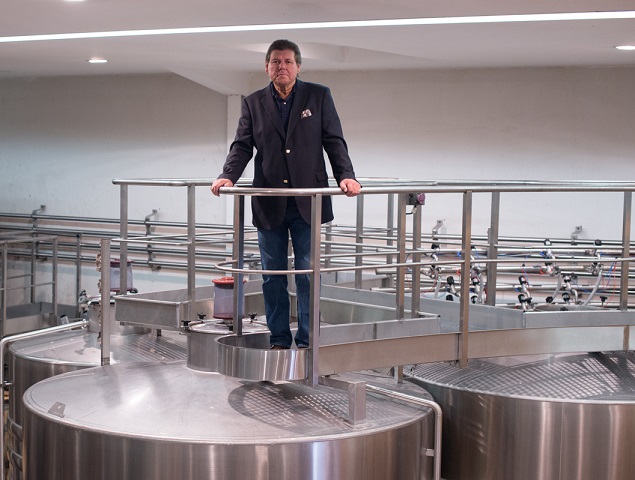
Jonathan Maltus (above), who has expanded Château Teyssier from 5ha to the current 60ha, said: “This is an exciting new chapter for the château.”
Slovakian wine enthusiast Patrik Tkáč, CEO of J&T Finance Group and one of the primary investors in the project, commented: “We feel very proud to join Jonathan in this project, we have admired his wines for some years and to have the opportunity to partner in a project that marries the 100 points of Le Dôme with designs from Foster + Partners is a personal dream come true for me.”
Le Dôme is Foster + Partners’ second winery in Bordeaux, the first being the extension to Château Margaux in 2015.
Large new winery for England
Foster + Partners has also designed a grass-roofed winery for a new brand in England.Vineyard Farms, the English winemaking business backed by Mark Dixon (owner of English wine brands Sedlescombe and Kingscote, and Provence’s Château Berne), launched a public consultation on plans for The Kentish Wine Vault, in southeast England, last month, prior to the submission of a planning application in the coming months. The plans include a winemaking facility, a visitor centre, restaurant, coffee shop, and presentation room. They also include a sustainable transport plan, with an electric shuttle bus taking visitors from the site to local train stations.
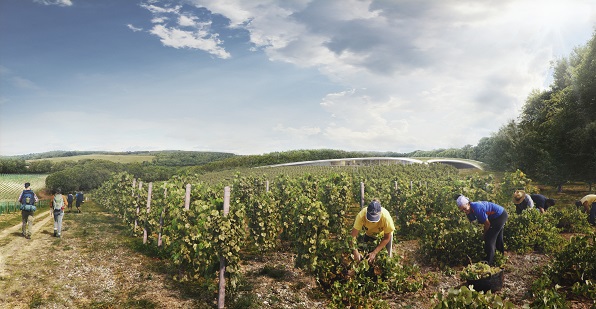
As well as the new eco-friendly winemaking facility, the project includes extensive new planting and habitat creation.
Vineyard Farms plans to make 4-5 million bottles of wine per year – mostly English sparkling wine – from 160ha of organic vineyards.
Gary Smith, CEO of Vineyard Farms, commented: “Our vision is to produce a domestic sparkling wine which is accessible to all, whilst matching the high-quality standards of European alternatives.
“The plans will deliver a multi-million-pound investment in the economy, create hundreds of new jobs and training opportunities for local people and significantly boost local tourism.
“At the heart of this is a commitment to the highest environmental standards, innovative design and cutting-edge sustainability solutions. The winemaking and bottling facility will be largely underground to minimise any visual impact on the surrounding area.”
Sophie's choice
French architect Marc Barani is responsible for the new winery at Les Davids, on the edge of the mountainous Luberon region, in southern France.Owned by the Belgian real-estate specialist Sophie Le Clercq since 2000, the estate’s new three-storey winery will have the reception area for grapes on the first floor; winemaking, assembly, and sales on the ground floor; and bottling and storage in the cellar. The winery also includes a shop and tasting room, now open to the public.

Surrounded by orchards and gardens, Les Davids has 20ha of vineyards and currently produces 11 organic wines.
To help the 2,130sq m concrete building, at the top of a hill on the border of the Ventoux and the Monts de Vaucluse, blend in with the landscape, it has an ochre colour to reflect “the rocky earth that slides down to the valley”.
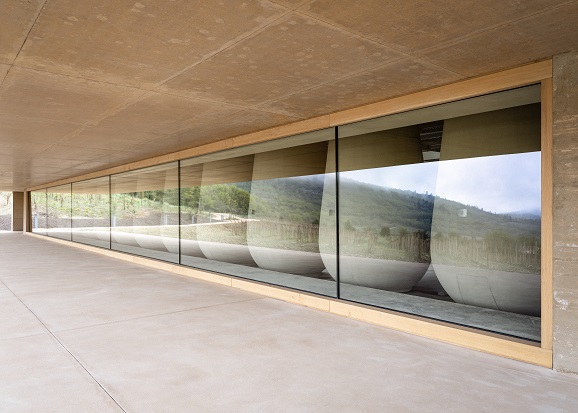
One striking feature is the glass notch that reveals the concrete tulip vats, giving visitors the chance to view the fermentation and maturation vessels, the vines and the surrounding mountains at the same time while standing under a large cantilevered canopy.
“This is the place where the visitor will be able to physically perceive the essence of the estate, that is to say, the joint work of nature and man to make the barren land generous,” Barani said.
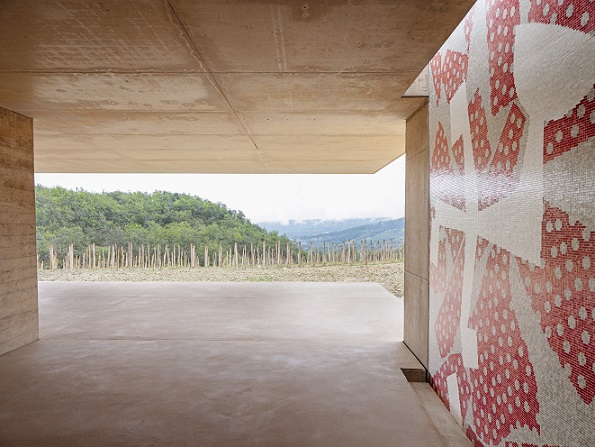
From this terrace, visitors walk through the corridor – where there is a huge ceramic fresco by the Belgian artist Yves Zurstrassen – and into a corridor leading to the tasting room and shop.
The estate also has six self-catered holiday homes to rent and everything guests need to enjoy a holiday – five heated swimming pools, two spas, two tennis courts and beautiful landscaped gardens. These holiday homes are spread over three hamlets, quietly tucked away between the oak forests, lavender fields, olive trees and the vineyards.
New wine tourism project in Hungary
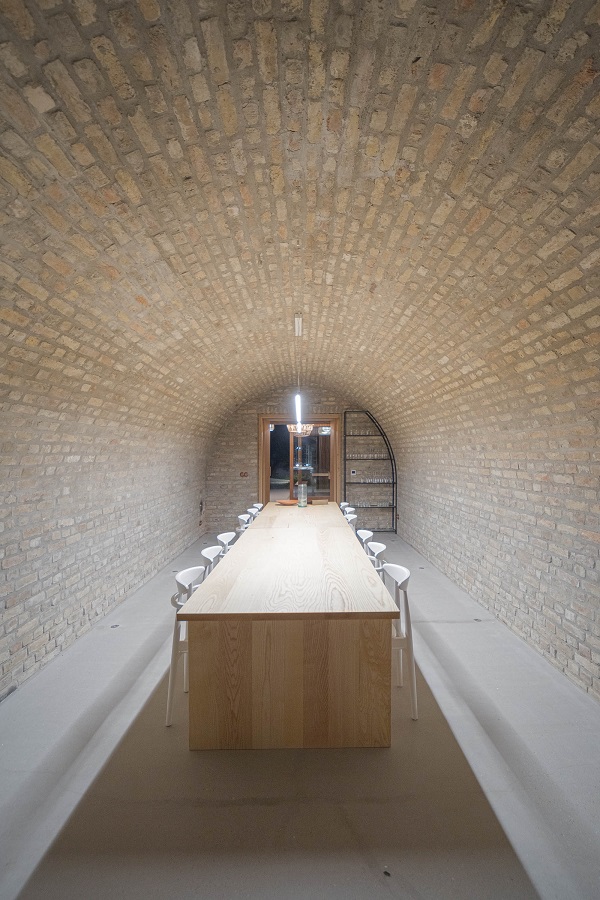
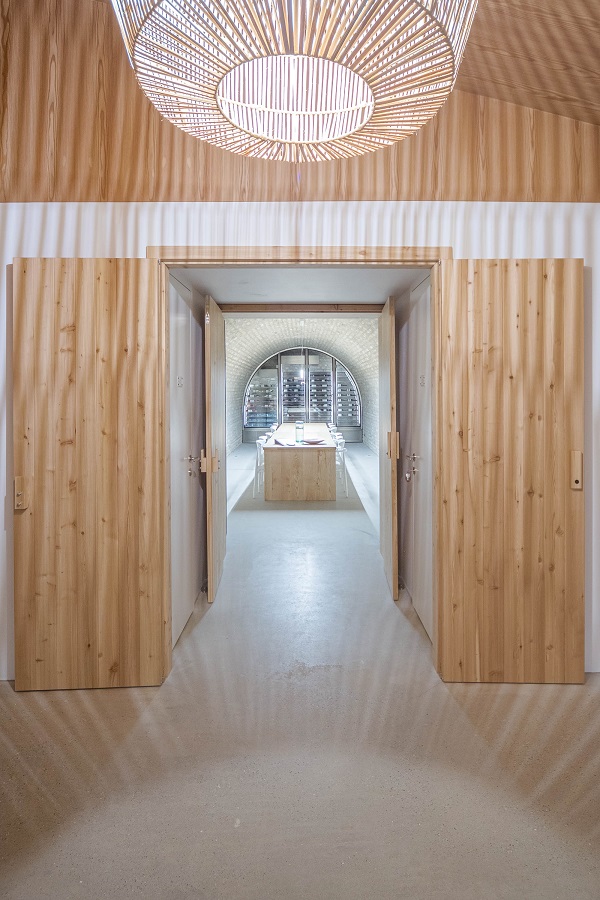
An old cellar in Hungary’s Szekszárd wine region has been turned into a tasting room and indoor dining area – with heating!
It’s part of a new wine tourism offer at a small vineyard owned by food engineer Péter Dudás and lawyer Attila Kovesdy.
Called ‘Szegzárd - the lodge’ (from the region’s old spelling), the project features two family-sized lodges designed by Építész Stúdió, a pool, a jacuzzi and a sauna in the middle of a small wood. The high-quality lodges are made of larch wood on a cement base.
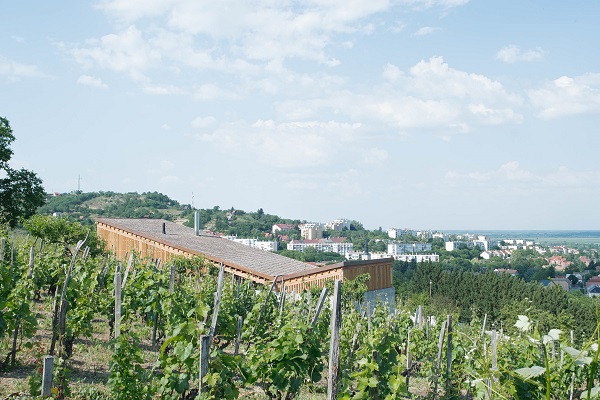
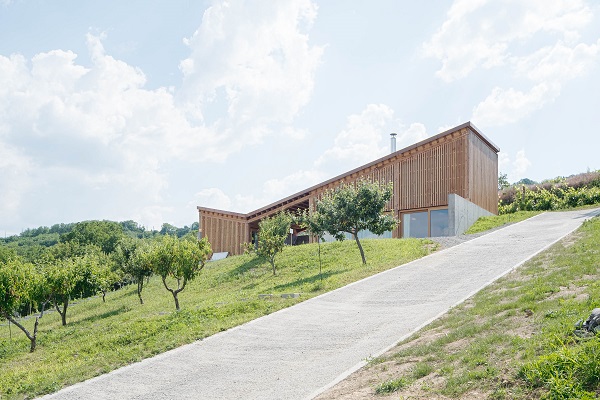

The project shows what can be done with a small wood, orchard and 1-acre (0.4ha) vineyard. The vineyard does, however, contain 30- to 40-year-old Kadarka vines, the Szekszárd region’s specialty, as well as some Cabernet Franc.
“We are motivated to start to produce our own wine maybe from next September,” Péter told us.
“But our aim is to boost the tourism of Szekszárd with a highly positioned project. In Szekszárd you can find pretty great and first-class wines; winemakers with high knowledge, but the lack of a gastronomy experience and high-class properties and wine cellars make the region so unknown even within Hungary.”


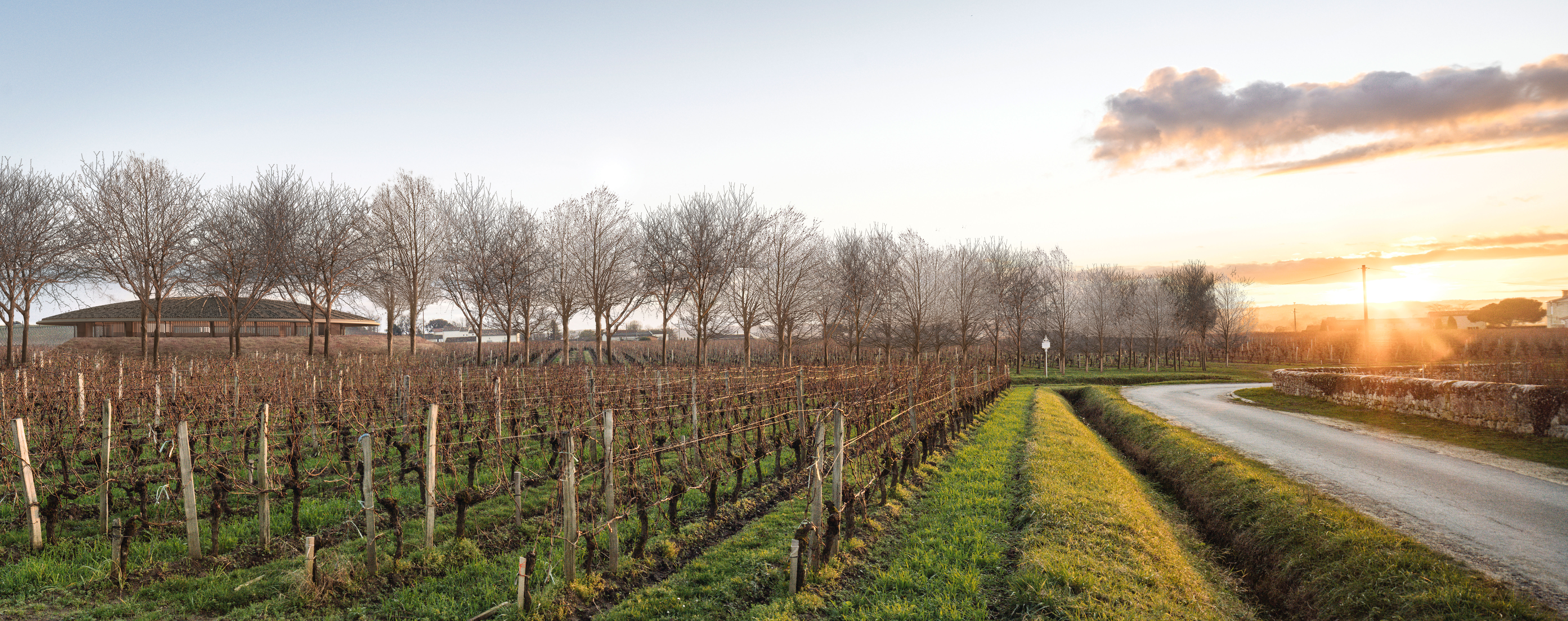








.png)









